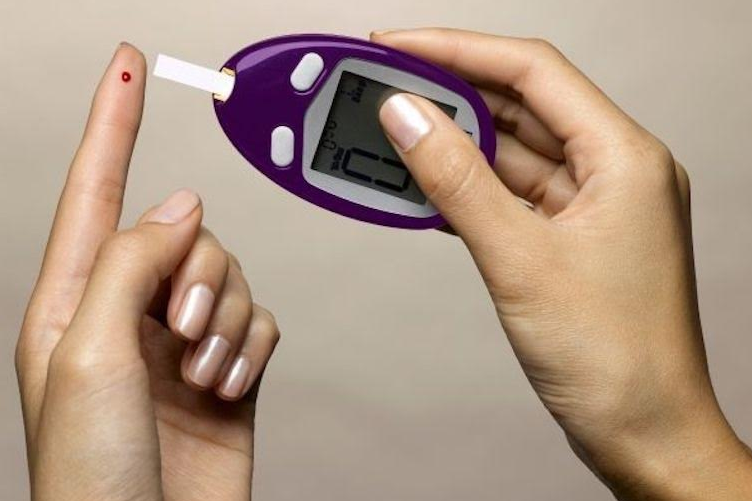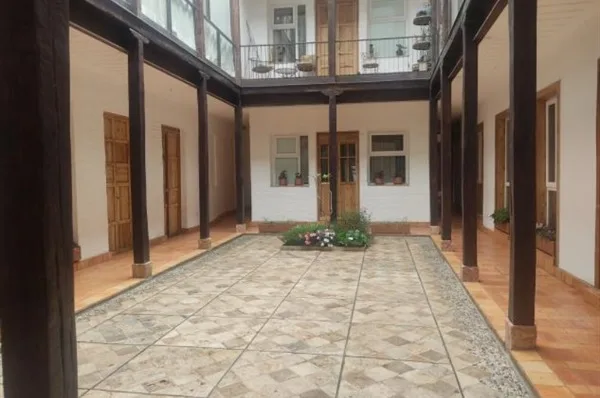Tips and tricks for managing your diabetes in Cuenca
As a member of the Academy of Nutrition & Dietetics, I’m privileged to have as colleagues some of the most accomplished Registered Dietitian Nutritionists (RDNs) in the world! Our guest columnist this week is Diane Johnson, a registered dietitian and certified diabetes educator. A graduate of the University of Wisconsin Universities with a Master’s Degree in Nutrition, and Bachelor’s Degree in Social Work, Diane has 20 years of experience in clinical nutrition, diabetes education, and one-on-one outpatient counseling.

Diane Johnson
Relocating from Wisconsin to Cuenca in 2015, Diane enjoys exploring Ecuador and she’s improving her Spanish every day. You’ll see Diane biking all around town, and she volunteers at several Cuenca charities, including CreaTuEspacio and Casa de la Diabetes.
By Diane Johnson
Managing diabetes can be difficult anywhere in the world, but as an Expat there can be an added level of confusion, and perhaps frustration too. We’re not in Kansas anymore, but we’re not in Timbuktu either.
To start off with, let’s clarify – there are different types of diabetes, and each person has a different personal experience in managing their disease. Some with type 2 diabetes may be able to control it with diet and exercise or may have to take 1-2 oral medications daily. Others need insulin injections, or an insulin pump. With these different experiences, different challenges arise. For the purposes of this article, I’ll discuss generalities about services available in Cuenca, the city in which I live and work. My goal is to dispel myths and point you in the right direction, to finding the tools and support you need in managing your diabetes in Cuenca, whether you already live here, or you are considering moving here.
Medications Hit & Miss
Although most classes of diabetes medications are available in Cuenca, the options available within each class are less than what you’ll find in The U.S. One class of medication used in the U.S. that I have not found available at all in Cuenca are non-insulin injectable medications such as Victoza®, Byetta®, or Trulicity®.
 It is a myth that you can’t find good quality insulins in Cuenca. You can get nearly all insulins here that are available in the U.S., including Humalog®, Novolog®, Apidra®, Lantus®, Levemir and even Toujeo®. They are available in the vial and pens, exactly as you’re used to in the U.S. Most insulins are easy to find and available at very reasonable over-the-counter prices, compared to their very expensive counterparts in The U.S. Did you catch that? You can buy them over-the-counter here.
It is a myth that you can’t find good quality insulins in Cuenca. You can get nearly all insulins here that are available in the U.S., including Humalog®, Novolog®, Apidra®, Lantus®, Levemir and even Toujeo®. They are available in the vial and pens, exactly as you’re used to in the U.S. Most insulins are easy to find and available at very reasonable over-the-counter prices, compared to their very expensive counterparts in The U.S. Did you catch that? You can buy them over-the-counter here.
To dispel another common myth, insulin pumps and continuous glucose monitoring devices (CGM)are available in Ecuador – that’s the good news. The bad news is that presently, these resources are limited to specific Medtronic models only. If you’re planning on living in Ecuador with a different type of insulin pump, you will need to bring all pump and CGM supplies with you.
More Testing Supplies Please
I am not a health insurance expert, but I do know that it is highly unlikely that Ecuadorian insurance companies will pay for diabetic testing supplies. Glucose meters, test strips and lancets are typically purchased over-the-counter, without a prescription, at local pharmacies. Even if you get a physician to write a script for testing supplies, it’s virtually unheard of that an insurance will reimburse the cost.
Also, in the U.S., your diabetes educator or doctor’s office probably had a never-ending supply of free meters to hand out, and maybe some free test strips too. That rarely exists here. The average cost of test strips is ~ $1/strip. The good news, however, is that most local pharmacies have frequent discounts and promotions on testing supplies. And on medications too! Can you even imagine asking a pharmacist in the U.S. if your insulin is on sale today?
When thinking about meters and test strips, think quality over quantity here. Quality meters are available, but the variety is limited. Most pharmacies in Cuenca sell three or four types of meters and supplies. Accu-Chek Performa Nano®, Accu-Check Active®, OneTouch UltraMini®, and Prodigy AutoCode® are the most common. I occasionally see a FreeStyle® meter for sale, but they’re not nearly as common. If you’re bringing a meter from the U.S., it’s unlikely that you’ll be able to find supplies here unless it’s one of these models. Also, there is a rumor I’ve heard more than once that test strips from another country don’t work with Ecuadorian meters. This is a myth – if you have the correct test strip with the correct meter, it doesn’t matter where you buy it.
 The quantity of supply available can be a challenge in Cuenca, especially when working with smaller pharmacies stores. For example, you may find a great discount on a medication or test strips that gives you 25% off today, but the pharmacy closest to you might only have a couple boxes of strips or a few insulin pens in stock. If you want to take full advantage of the discount, you may need to physically go to other stores in that chain to purchase more. This happens often here. I don’t have diabetes, but I have had to go to three different Cruz Azul pharmacies on the same day, all within a 6-block radius of each other, so I could purchase a larger amount of my medication that was on sale that day. It’s simply part of the culture that you will either get used to or continue to be frustrated with. The choice is up to you. There are larger pharmacy stores, where supply isn’t as much of an issue. You may, however, sacrifice price for convenience.
The quantity of supply available can be a challenge in Cuenca, especially when working with smaller pharmacies stores. For example, you may find a great discount on a medication or test strips that gives you 25% off today, but the pharmacy closest to you might only have a couple boxes of strips or a few insulin pens in stock. If you want to take full advantage of the discount, you may need to physically go to other stores in that chain to purchase more. This happens often here. I don’t have diabetes, but I have had to go to three different Cruz Azul pharmacies on the same day, all within a 6-block radius of each other, so I could purchase a larger amount of my medication that was on sale that day. It’s simply part of the culture that you will either get used to or continue to be frustrated with. The choice is up to you. There are larger pharmacy stores, where supply isn’t as much of an issue. You may, however, sacrifice price for convenience.
Medical Support Is Here
There are many general practitioners and endocrinology specialists practicing in Cuenca to help you manage your diabetes. Some speak English, some don’t. Medical translators are easy to find here if needed. Many of these providers accept appointments by contacting them directly via email, phone, or WhatsApp. Now that’s refreshing!
There is no nationally recognized Certified Diabetes Educator (CDE) program in Ecuador. There are many practitioners skilled at helping you manage your diabetes, including dietitians and nurses, but unless the provider has obtained a certification out-of-country, it doesn’t exist in Ecuador. here is hope that this will change in the future.
Cuenca is home to a wonderful non-profit foundation called Casa de la Diabetes (House of Diabetes). I have found Casa de la Diabetes to be an invaluable resource for Expats and Ecuadorians living with diabetes in Cuenca. They have supplies and medication for sale at prices frequently lower than other pharmacies. They provide discounted consultation fees, free community education programs, podiatrist services (a difficult service to find in Cuenca), insulin pump support, diabetes camps for kids, and much more to help you manage your diabetes. Check out their website for more information at Casa de la Diabetes.
Latin American Lifestyle
The climate, culture and cuisine make Cuenca a city that’s conducive for healthy living if you so choose. Cuenca is a very walkable city for most, with temperatures favorable to enjoying the outdoors year-round. Locally grown, fruits and vegetables are abundant and inexpensive, making the basis of a healthy diet affordable.
Just The Facts Ma’am
Don’t believe everything you read online. For those of you not yet living in Cuenca, finding up-to-date, accurate information about diabetes services and resources in Cuenca can be difficult. This is a culture where going to the place of business is still the standard, which requires legwork, literally. That’s great for your blood sugar levels, but not very efficient if you’re trying to gather information from abroad. ou can find lots of information and opinions online but be cautious about making your decision to move here based solely on this, especially if your diabetes and other health concerns are more complicated. Verify, verify, verify….in person if possible.
Things are changing all the time, but rest assured, diabetes care in Cuenca is not in the Dark Ages. It’s not perfect, but for many people with diabetes, it’s manageable. Like most things with living abroad, one needs to anticipate differences, expect challenges, and be open to a different way of doing business.
___________________
Diane Johnson, MS, RD, CDE has been a Registered Dietitian/Nutritionist, and Certified Diabetes Educator for over 20 years. She currently lives in Cuenca and has a private nutrition & diabetes education practice helping Cuenca Expats. She can be reached at ExpatNutrition@yahoo.com or via Facebook at Expat Nutrition.





















